This week we talk to sci-fi author, Stephen Cox
Q: Hi, Stephen Cox, how are you doing? What have you been up to so far this year?
My second book, Our Child of Two Worlds, is out here and in the States. That’s two books from one short story I wrote in 2013. I’m on the second draft of a book set in a different time, place and feel, which is exciting, and I’m going to the lovely city of Edinburgh for an event soon.
Q: Your first published story, Our Child of the Stars, has now been followed up by Our Child of Two Worlds. Could you tell us a bit about these books and how they are connected?
They are the two halves of the same story. They’re adult books, but I know strong readers 12+ might like them. Our Child of the Stars concerns a childless couple, Gene and Molly, who adopt a delightful boy from the stars they call Cory. To keep him safe, they have to keep him a secret. It’s a powerful, heartfelt story of love, acceptance, and decency and an adventure told mainly by Molly, a passionate and idealistic nurse.
By the second book, Our Child of Two Worlds, Cory is no longer a secret. There is a sinister threat from space, and Cory’s wise and peaceful people need to come… but if they do, will Gene and Molly lose him forever? The sequel steps up the stakes and the danger for the family and everyone else. The work has sci-fi themes but reaches beyond that to entertain people who don’t usually look at the sci-fi shelf.
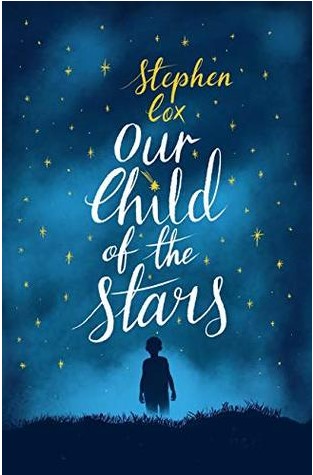
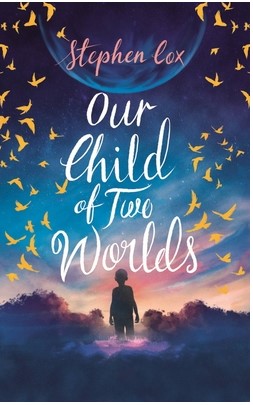
Q: Your setting is the end of the 60s. What makes this era suitable for this story?
Everything really. It was a time when people were re-examining everything. There was idealism for a better world, and we took a tentative step into space yet faced an endless war and the threat of annihilation. Molly and Gene are young people who step up to do extraordinary things. Of course, the music from that time plays a big part in the book. It was also the beginning of our understanding that we threatened the environment; thus, life itself is a strong theme.
Cory comes from a world without war, poverty, or prejudice, and where the need to be green was accepted in time several hundred years ago. Cory can’t help but challenge us. And many things we gained in that era are now being fought for over again – progress is a choice. The books are partly about why cynicism returned and whether it was inevitable. When you write the 60s, you are in some ways writing about now.
Q: Your extensive communications career has included a long stint with Great Ormond Street Hospital. Did you gain any insights into the human condition now useful to you as an author?
I think my time there feeds into the books in various ways. A children’s hospital shows the very best of human nature in caring for each other, the resilience and love of people under extraordinary fear and strain and, yes, the bad side too. You come to understand a blameless child can die and that a parent can harm their child. Cory starts sick, so there are hospital scenes, and Molly must break important rules to save him.
Children can be so optimistic, clear-eyed, and empathic, so Cory got that by the ton. And he looks rather odd and ugly to the human eye, and the hospital wouldn’t tolerate discrimination against children whose condition meant they looked or sounded different.
Q: You’ve written a regular blog since 2017. Have you any tips or feedback on ours?
My blog goes through bursts of enthusiasm, and it’s a useful place to store stuff I’m doing or thinking. I’m currently finding time to revamp it. I think it’s good that yours mixes outside voices with regular Books2All updates, with timely ideas for teaching and book recommendations etc. (And to put these within the wider inequalities agenda.) I have a regular newsletter on books, writing and life, which you can subscribe to on my website.
Q: You write for adults, but what are your thoughts on the importance of books to children’s education?
I’m also a parent, a citizen, and someone who worries a great deal about our young people getting the best possible start. Every day that children go to school hungry in this country is a disgrace, and we could fix this by Christmas if we wanted to. I was a voracious child reader, and books were my friends for much of my first decade. Developing literacy is important for children to get good practical chances in life, and I’m all behind that. I did a stint in further education and training where we found that employers talked about ‘English’ as code for a whole raft of basic communications skills.
But let’s also celebrate reading (and being read to) for its own sake: escape and explanation, understanding other worlds, times, people and ourselves. Education also needs to be about fulfilling lives. Our ancestors told stories around the campfire to teach each other and explore our extraordinary lives. If we show children that they can enjoy reading, hopefully, they will absorb the literacy skills they need. (My books have children and teens as point of view characters, and I may be called to write books aimed at them in future.)
I’m not decrying film or audio, by the way, but I do want to retain the immersive full read.
Q: 1 in 8 schools across Britain do not have a library – have you had experience of the educational inequality within the school system or met anyone who was?
It’s extraordinary that such a basic and essential resource could be stripped out of any school anywhere. I was fortunate in my schools and my children’s schools – although one primary was much better equipped than the other, which was all down to funding. As a child, I spent lunch hours in the school library working through books. I remember reading the collected short stories of HG Wells, which is a book big enough to stun a burglar. Libraries allow a child to explore beyond the basics of what they have been asked, a resource for adults to prescribe good books, and a space which encourages reading.
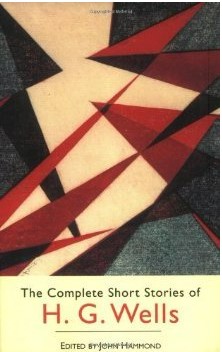
Q: What book or books do you think all children in schools should be given to read?
I’d hesitate to recommend. I am wholly behind books which reflect the world we live in, of different family types, ethnicities and religions. I am weary of the lazy peddling of stereotypes. I don’t know what patience children would have now for some of the things I read like E Nesbit, the Moomins, and Alan Garner. I hope people still read Diana Wynne Jones and Ursula K. Le Guin. Miraculous books are also being published now.
I realise reading anything is good, but I worry about some of the super-brands in kids’ books. (Not a new issue – my school stopped offering Enid Blyton. Right or wrong?) I hope the history books teach a joy in understanding the past while being clear-eyed about what was wrong. Thank goodness, the science curriculum is now better at explaining science.
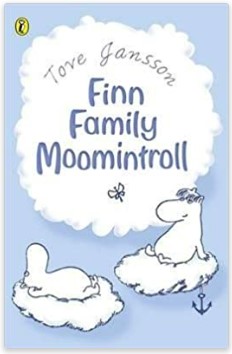
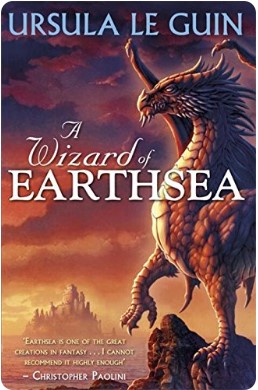
Q: Ok, so the final question, Stephen Cox – if all the libraries in the world were burning and you could only save three books, what would they be and why?
I guess most stuff now could be downloaded or digitised, although my personal preference is always print. I guess two slots could be my books because I think if you read them, you’ll like them. The Knowledge by Lewis Dartnell is a one-volume guide to rebooting civilisation, which might be useful.
Thank you for visiting our blog. Our vision here at Books2All is a world where every child finds the books that help them reach their true potential. If you have spare books in good condition at home that you think might be appropriate for school children or represent a school and would like to register to receive donated books, please download the Books2All app from the App Store or Google Play.

